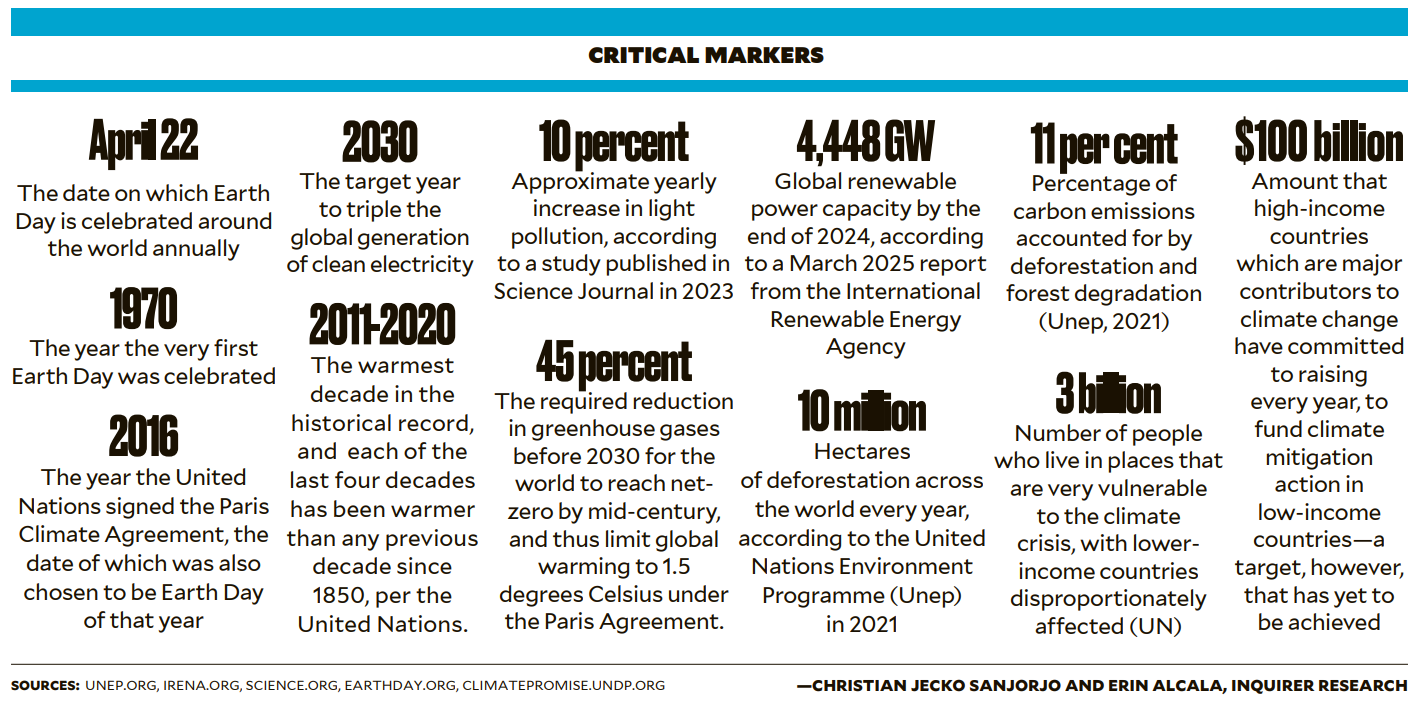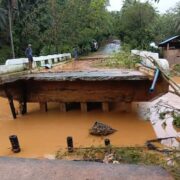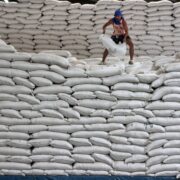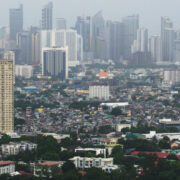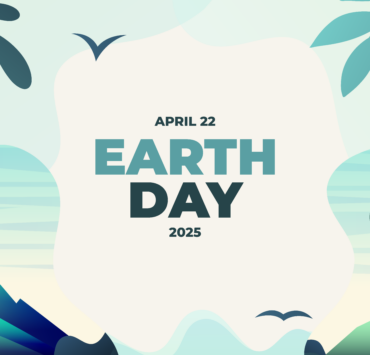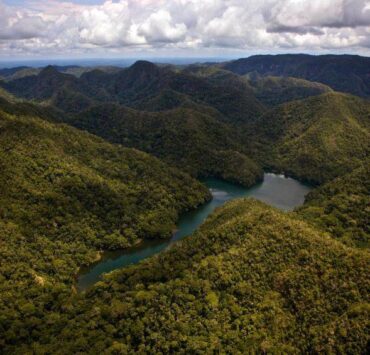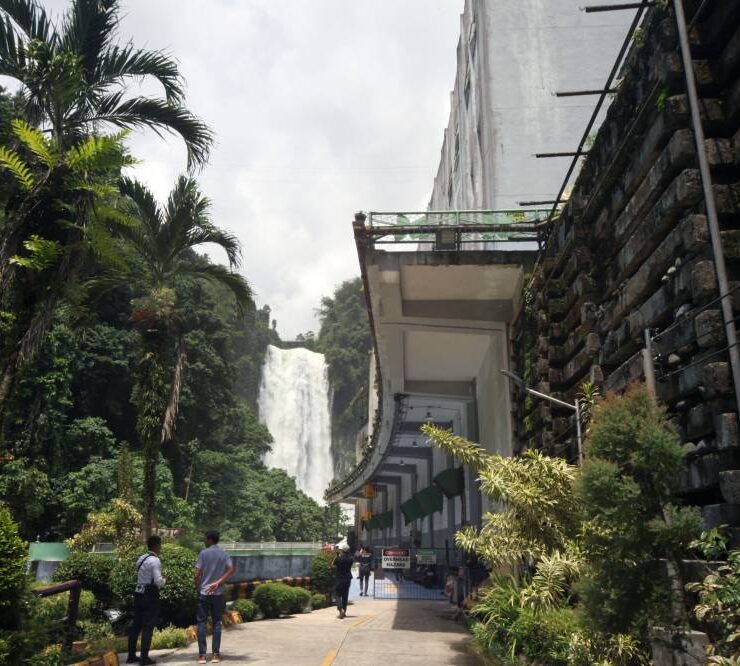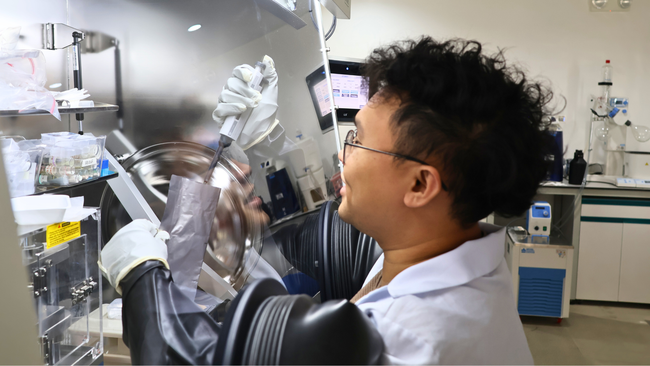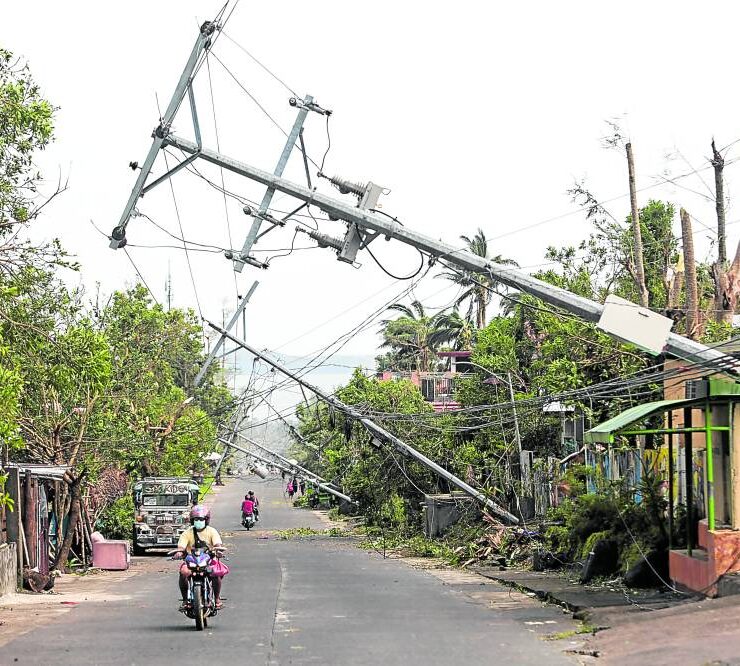Earth talk
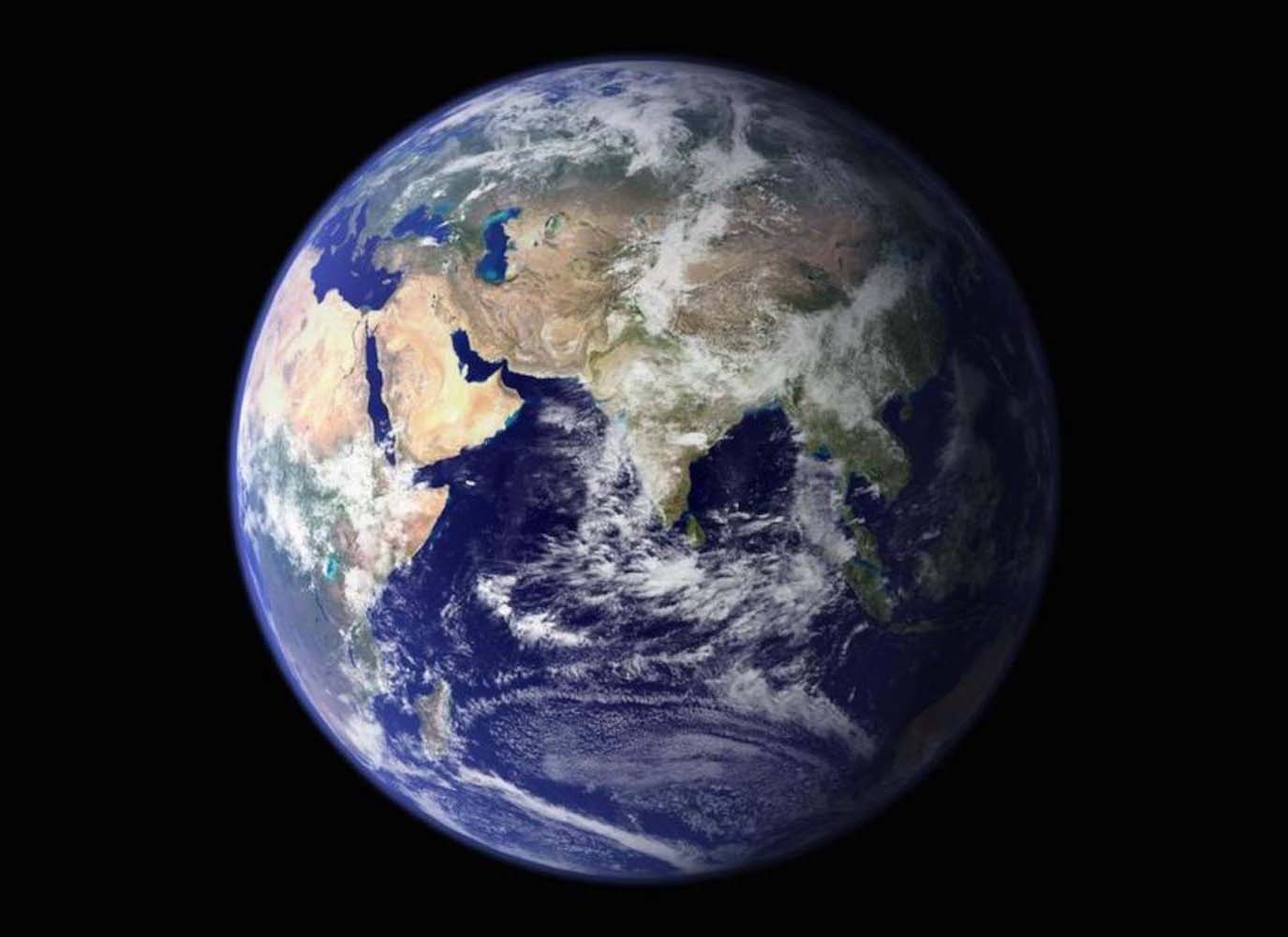
With rising greenhouse gas emissions, climate change is occurring at rates much faster than anticipated, causing intense and devastating global temperatures, severe storms and droughts, loss of species, rise in hunger, health risks, and poverty and displacement, among others.
Climate change affects all. A wide range of groups, organizations, and individuals throughout the decades from all over the world have talked about climate change and its adverse impacts in the hopes of spreading awareness, initiating discussions, and inspiring action to address it.
Communicating about climate change is about educating and mobilizing audiences to take action to confront the climate crisis. While much is happening around the world in this regard, more needs to be done. Continuing the discourse about climate change and the environment is always a good first step. Here are just a few of the most common terms used when talking about climate change:
Anthropogenic: Refers to something caused by humans, or human-made. In the context of greenhouse gases, emissions that are produced as the result of human activities.
Biomass: Materials that are biological in origin, including organic material (both living and dead) from above and below ground, like trees and animal wastes.
Biofuel: gas or liquid fuel made from plant material (biomass).
Carbon footprint: The total amount of greenhouse gases emitted into the atmosphere each year by a person, family, building, organization, or company. This includes greenhouse gas emissions from fuel that an individual burns directly, such as by heating a home or riding a car, and those that come from producing the goods or services the individual uses.
Carbon sequestration: The process by which trees and plants absorb carbon dioxide, release the oxygen, and store the carbon.
Climate change: Refers to any significant change in the measures of climate lasting for an extended period of time, including major changes in temperature, precipitation, or wind patterns, among others, that occur over several decades or longer.
Deforestation: Practices or processes that result in the conversion of forested lands for non-forest uses. Deforestation contributes to increasing carbon dioxide concentrations through the burning or decomposition of the wood, which releases carbon dioxide; and when trees that once removed carbon dioxide from the atmosphere in the process of photosynthesis are no longer present.
El Niño: A natural phenomenon that, in addition to contributing to higher temperatures in many parts of the world, also drives tropical cyclones in the Pacific and boosts rainfall and flood risk in parts of the Americas, Asia, and elsewhere.
Fossil fuel: A general term for buried combustible geologic deposits of organic materials, formed from decayed plants and animals that have been converted to crude oil, coal, natural gas, or heavy oils by exposure to heat and pressure in the earth’s crust over hundreds of millions of years.
Global warming: The recent and ongoing global average increase in temperature near the Earth’s surface. Warmer temperatures over time change weather patterns and disrupt the usual balance of nature, posing many risks to human beings and all other forms of life on Earth through dangerous heat levels, more severe storms and drought, wildfires, famine, loss of species, and depletion of resources leading to widespread poverty, hunger and displacement.
Greenhouse effect: The trapping and buildup of heat in the atmosphere near the Earth’s surface. Some of the heat flowing back toward space from the Earth’s surface is absorbed by water vapor, carbon dioxide, ozone, and several other gases in the atmosphere and then reradiated back toward the Earth’s surface. If the atmospheric concentrations of these greenhouse gases rise, the average temperature of the lower atmosphere will gradually increase.
Greenhouse gas (GHG): Any gas that absorbs infrared radiation in the atmosphere. Greenhouse gases include, but are not limited to, water vapor, carbon dioxide, methane, nitrous oxide, hydrochlorofluorocarbons, ozone, hydrofluorocarbons, perfluorocarbons, and sulfur hexafluoride. Greenhouse gases absorb heat and help warm the earth to habitable levels, but increased levels of GHGs lead to faster global warming, which drives climate change.
Recycling: Converting waste materials into new materials and objects, to promote environmental sustainability and reduce the impact of waste on the planet.
Renewable energy: Energy obtained from sources that are essentially inexhaustible—unlike, for example, fossil fuels, of which there is a finite supply. Renewable sources of energy include wood, waste, geothermal, wind, photovoltaic, and solar thermal energy.
Tipping point: A threshold after which certain changes caused by global warming and climate change become irreversible, even if future interventions are successful in driving down average global temperatures.
Sources: Inquirer Archives, 19january2017snapshot.epa.gov, unfccc.int, un.org, climatepromise.undp.org
